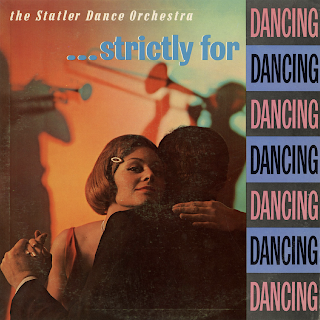A Night In Tunisia
The Cooker
Lee Morgan
Cover Photo by Francis Wolff
Cover Design by Reid Miles
Blue Note BST 81578
Recording by Rudy Van Gelder
A Product Of Liberty Records
1970
From the back cover: Lee Morgan, not yet twenty years old at this writing, is here represented for the fifth time as the leader of a Blue Note recording session. His fantastically rapid growth (technically and musically) as witness these pervious efforts; BLP 1538, 1541, 1557 and 1575, along with this one, places him beyond the "upcoming" or "potential" status into the ranks of those whose potential has been realized. Lee stands, right now, as one of the top trumpet players in modern jazz.
As the title states, Lee is a "Cooker." He plays hot. His style, relating to the Gillespie – Navarro – Brown school, is strong and vital. There is enthusiasm in his music. A kind of "happy to be playing" feeling that is immediately communicated to the listener.
Born and reared in Philadelphia, Lee began fronting his own combos around the Philly area when he was only fifteen. Later, he sat in on a weekly "Workshop" sessions at Music City, rubbing shoulders with the likes of Miles Davis and Clifford Brown. He spent several weeks with Art Blakey's Jazz Messengers before going on the road with the Dizzy Gillespie orchestra of which he is still an important member.
Lee's constant improvement can be largely attributed to Diz. The maturity that he has acquired from working with a band made up of extremely accomplished musicians, under the direction of a man like Dizzy, cannot be overemphasized. While Dizzy's brilliant musical capabilities are often obscured by his flare of showmanship, this, in no way, detracts from the admiration that almost all contemporary musicians have for him. Dizzy is still the boss, the master, the teacher, and Lee, perhaps his star pupil.
Pepper Adams, a scholarly looking, strong-tone baritone saxophonist, who placed first in the "New Star – 1957 Down Beat Critic's Poll" makes his initial Blue Note appearance on this record. Born in Highland Park (a suburb of Detroit), Michigan on October 8, 1930, Pepper moved to Rochester, New York when he was five and began listening to people like Fats Waller over the radio when he was in the first or second grade. He lived in Rochester until he was sixteen, picking up the tenor when he was twelve, and digging in particular the big bands of Jimmy Lunceford, Lucky Millinder, Cab Calloway and Duke Ellington. He played with his high school band and local groups and collected records by Ellington, Coleman Hawkins, Art Tatum, Benny Goodman, Don Byas, Charlie Christian, et al. He moved back to Detroit in 1946 and switched to baritone, then worked his first big-time gig with Lucky Thompson. After that he played with just about all the young Detroiters who were eventually to make a success in the east (most on this label); Barry Harris, Billy Mitchell, Kenny Burrell, Tommy Flanagan, Paul Chambers, Don Byrd, Doug Watkins, Curtis Fuller, the Jones brothers and Yusef Latteef. Sonny Stott, Milt Jackson and Wardell Gray were others with whom he worked. Pepper remained in Detroit until early 1956 when Oscar Pettiford got him a gig with the Stan Kenton orchestra. That band broke up six months later in Los Angeles, but Pepper stayed on the coast to work with David Pell, Shorty Rogers, etc. He came back east with the Maynard Ferguson big band – quit it in New York and then returned west with Chet Baker. Once again in L.A. Pepper left Baker and came back to New York where he has since remained. He says that Hawk, Harry Carney, and Wardell Gray have been his biggest influences and names Carney and Cecil Payne as his favorite baritonists.
Bobby Timmons, another (and one of the better) Bud Powell oriented pianists, was born in Philadelphia on December 19, 1935. His uncle was a piano teacher and he began taking lessons when he was eight. He's been playing professionally since 1952, gigging, at first, around Philly primarily with Morgan. He broke into the New York scene in the early part of 1956, with Kenny Dorham and his Jazz Prophets. This was followed by jobs with Sonny Stott, Cannonball and Dinah Washington. He is currently a member of Maynard Ferguson's Birdland Dream Band. Bobby lists as his favorite piano players Bub Powell, Art Tatum, Teddy Wilson and Red Garland.
Paul Chambers and Philly Joe, who round out the rhythm section, are a pair of exceptional performers who have achieved a rather unusual and certainly lofty stature – they are appreciated highly and equally, by both musicians and fans. Chambers, since he left Detroit, has spent the better part of his working hours with Miles Davis and has gained a respectability as a bass player that seriously rivals the great Oscar Pettiford's. Philly Joe is a striking intuitive and inventive drummer who combines power with good taste. He, like Paul, has worked extensively with Miles and those who have caught him in person or on other recordings will support the statement that he is among the three of four best drummers. – Robersons Levin
A Night In Tunisia
Heavy Dipper
Just One Of Those Things
Lover Man
New-Ma















